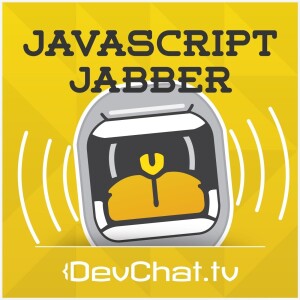
Today the panel is discussing iterating on open source projects. Aimee and AJ recall a conversation they had in the past on this subject and AJ talks about some of his experience iterating with open source. AJ believes that we have an obligation to capture the value of what you create so that we can reinvest and create more value, though he admits that making money in open source is a unique challenge because donations only really work if you have a project that gets billions of downloads a month. As your project grows, it has to change in order to survive, and eventually you will need to get financial support from your project. The panel agrees that some of the main issues with iterating in open source are maintaining the code and getting feedback from users, financial backing, and roadmapping and integrations.The panel discusses their methods for getting feedback from their users. This feedback is valuable because it can show you things that you missed. They acknowledge that there can be conflicts of interest between those who only use the project and those who financially support it, and you have to make a choice. Unfortunately, someone is probably going to be inconvenienced no matter what choice you make. When making these decisions, you have to consider who it helps, who it frustrates, and who it may cause problems for. The panelists talk about different ways they’ve handled making these decisions in the past. The JavaScript experts talk about the importance of having data on your user base in order to make good choices for your users. They talk about different methods for notifying your users of upcoming changes and how it will affect compatibility, and some of the challenges with communicating with your users. AJ talks about an iteration he thought was a good idea but that a lot of people hated and how he noticed that the new users liked it but the old users did not. They panel agrees that people in general don’t like change. AJ talks about what he learned from this experience. Another common issue is integrating with other services. Integrating with cloud services, or at least giving people the option to integrate gives you an opportunity to reach more people and maintain the project long term. AJ gives some final thoughts to close the show, namely that most projects never go anywhere, and that’s ok. If you’ve got something that starts going somewhere, think early on about how you can better serve the community and remember that these people are mostly grateful and semi-willing to support you. He believes that if you are helping people create value, you deserve to see the fruits of your labor. He advises listeners to stay true to your open source ideals, think about your users perspective, and that the earlier you can think about this and make these choices, the better it is for your project
Sponsors
Links
Picks
Support this podcast at — https://redcircle.com/javascript-jabber/donations
Privacy & Opt-Out: https://redcircle.com/privacy
Become a supporter of this podcast: https://www.spreaker.com/podcast/javascript-jabber--6102064/support.
view more
Sponsors
- Chuck's Resume Template
- Developer Book Club
- Become a Top 1% Dev with a Top End Devs Membership
Links
- How-npm-am-i
- React
- Vue.js
- Let’s Encrypt
- Async/await
- Node
Picks
- Aimee - Debug Like a Ninja
- Steve - Jack Ryan
- AJ - Why I, as a black man, attend KKK meetings
- Charles - It’s a Wonderful Life
- Charles - Mr. Kreuger’s Christmas
Support this podcast at — https://redcircle.com/javascript-jabber/donations
Privacy & Opt-Out: https://redcircle.com/privacy
Become a supporter of this podcast: https://www.spreaker.com/podcast/javascript-jabber--6102064/support.
More Episodes
How to Get Hired at a FANG Company - BONUS
 2021-05-28
2021-05-28
 2021-05-28
2021-05-28
BONUS: Relationships Matter Most
 2021-04-23
2021-04-23
 2021-04-23
2021-04-23
012345678910111213141516171819
Create your
podcast in
minutes
- Full-featured podcast site
- Unlimited storage and bandwidth
- Comprehensive podcast stats
- Distribute to Apple Podcasts, Spotify, and more
- Make money with your podcast
It is Free
- Privacy Policy
- Cookie Policy
- Terms of Use
- Consent Preferences
- Copyright © 2015-2024 Podbean.com





